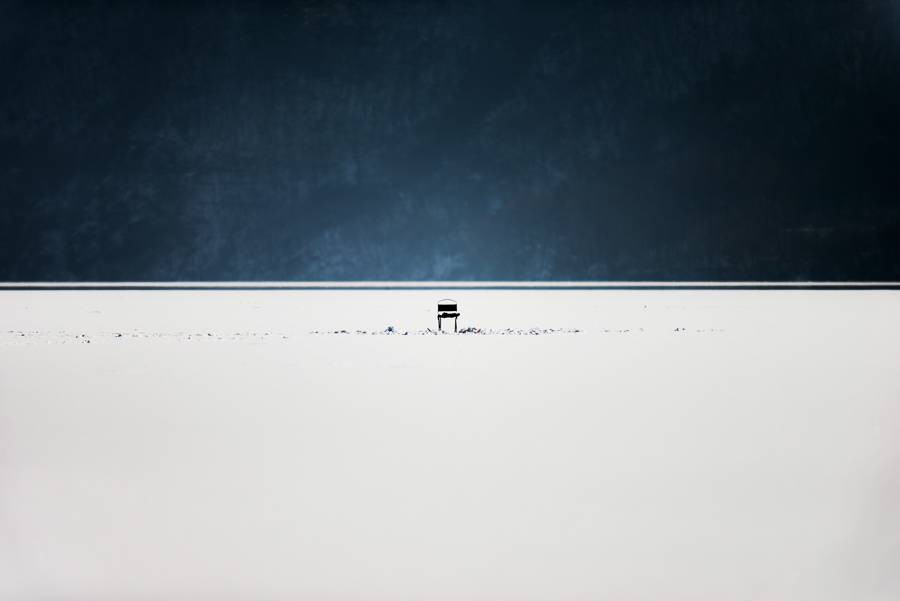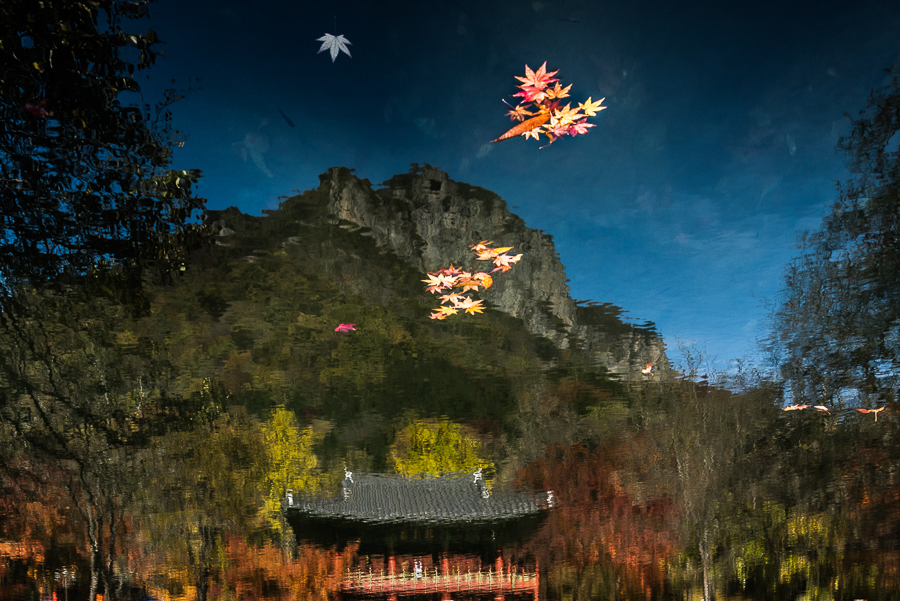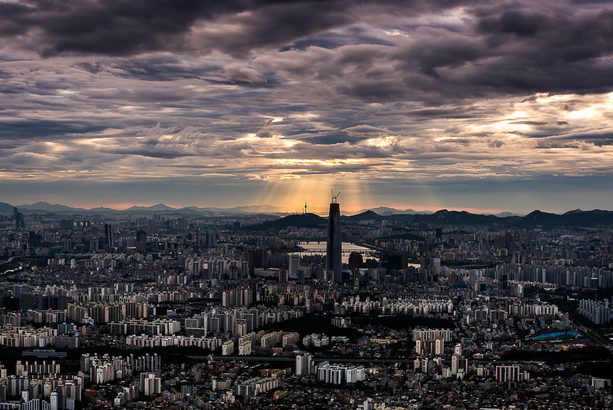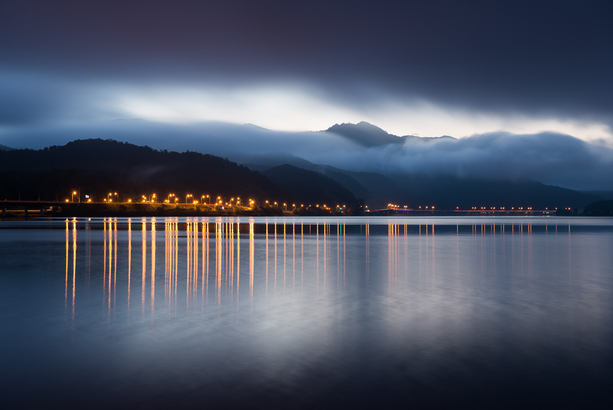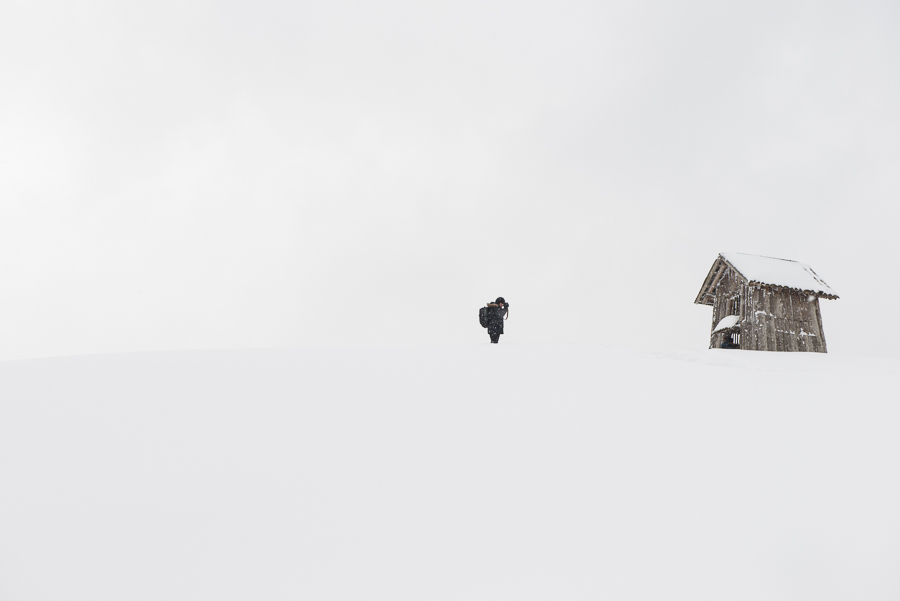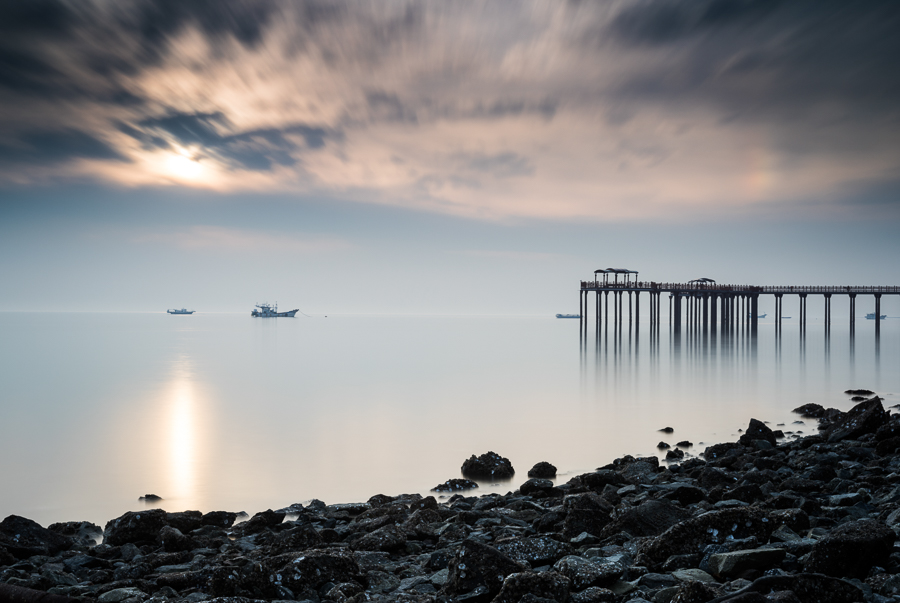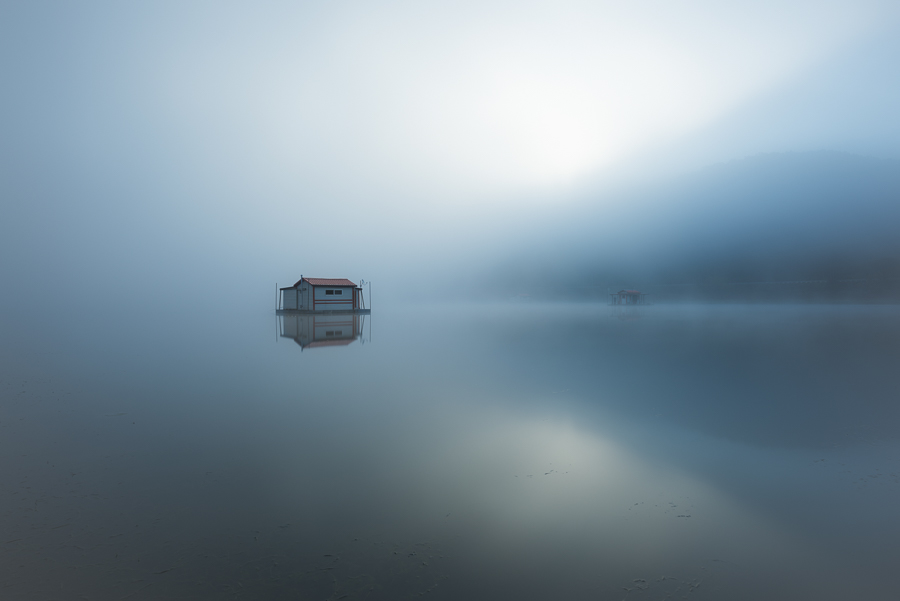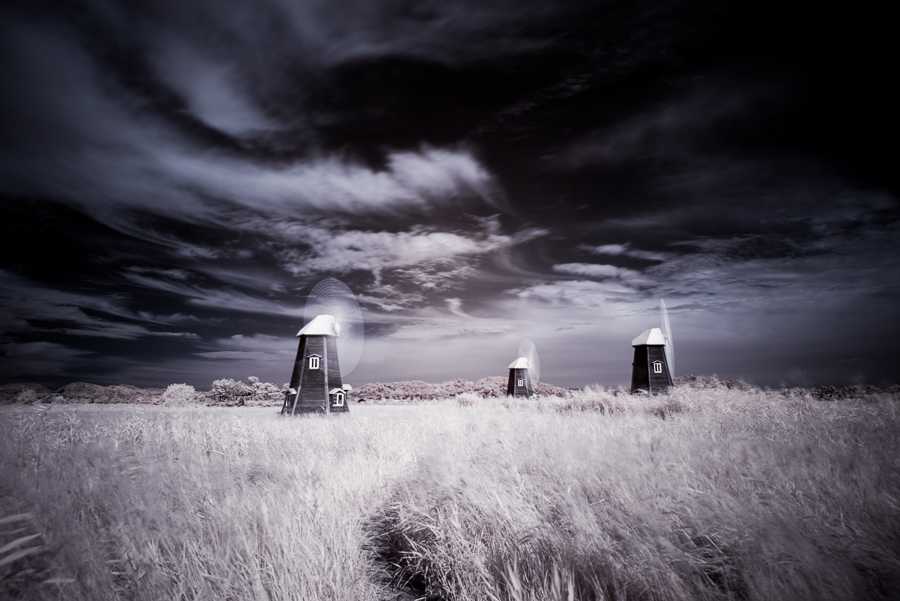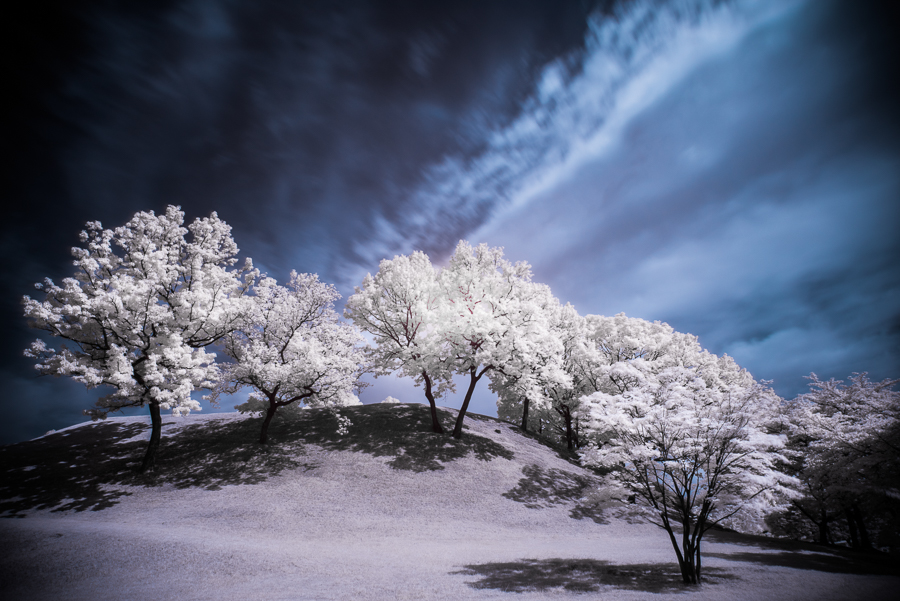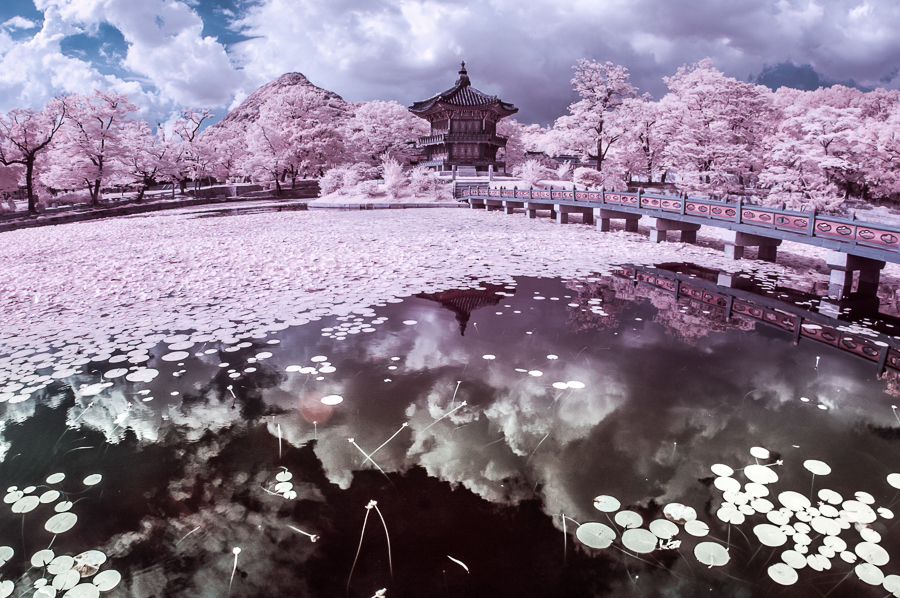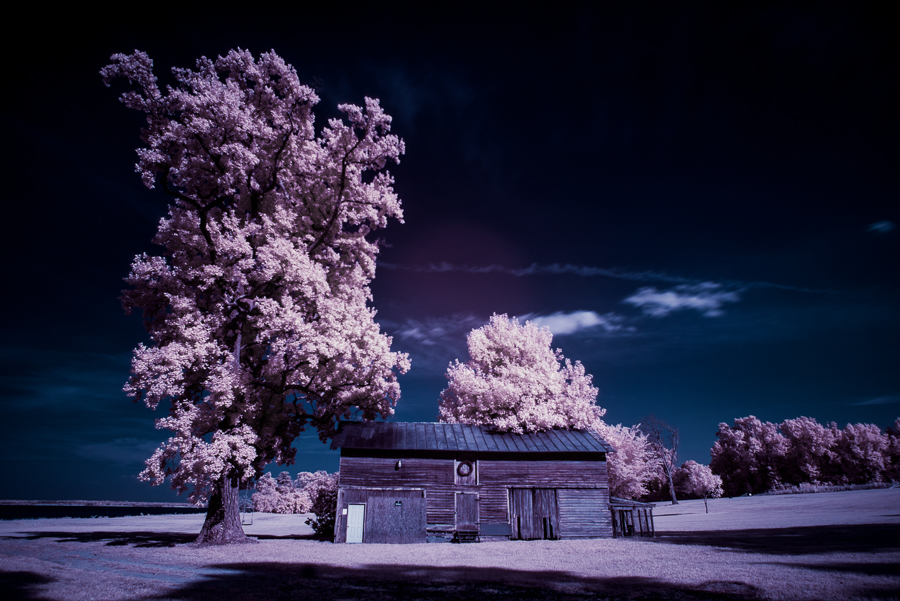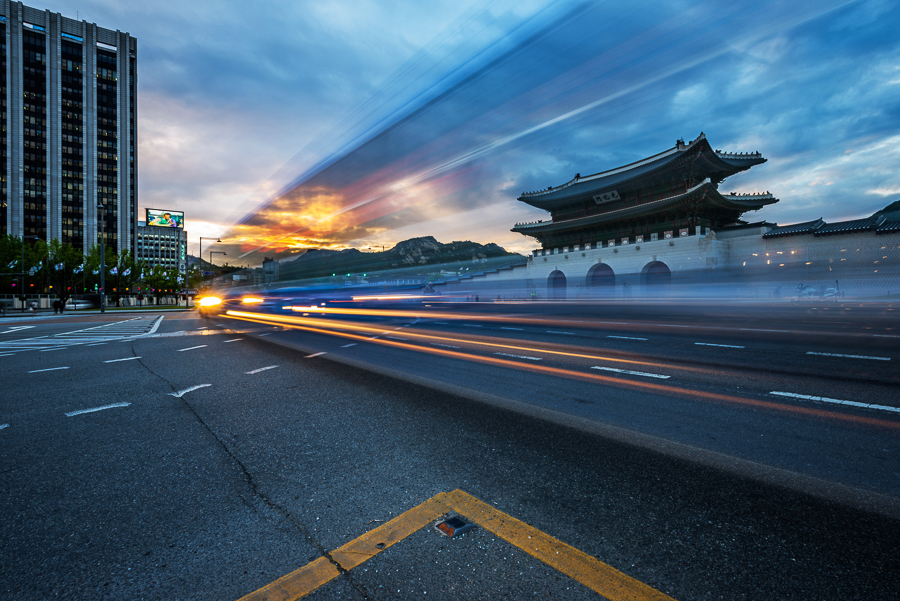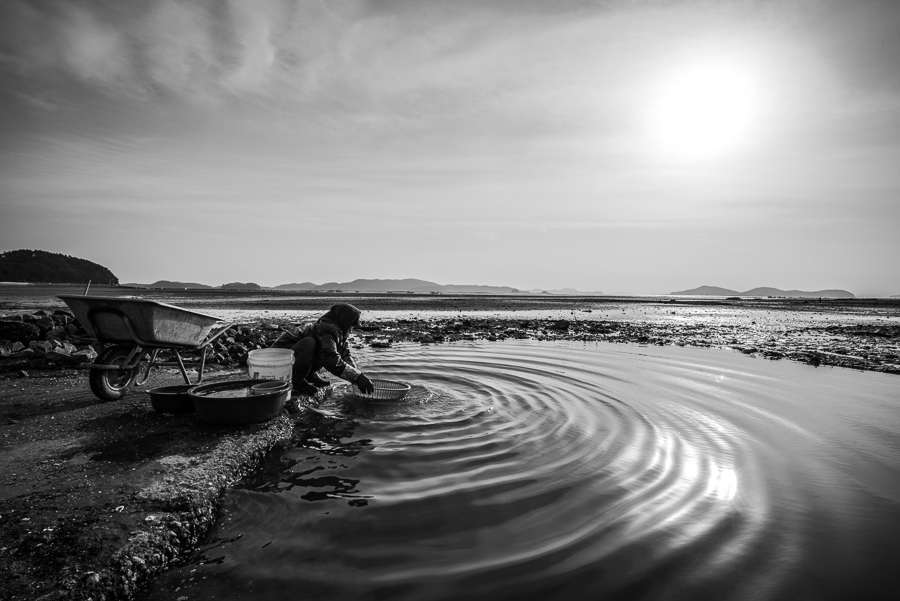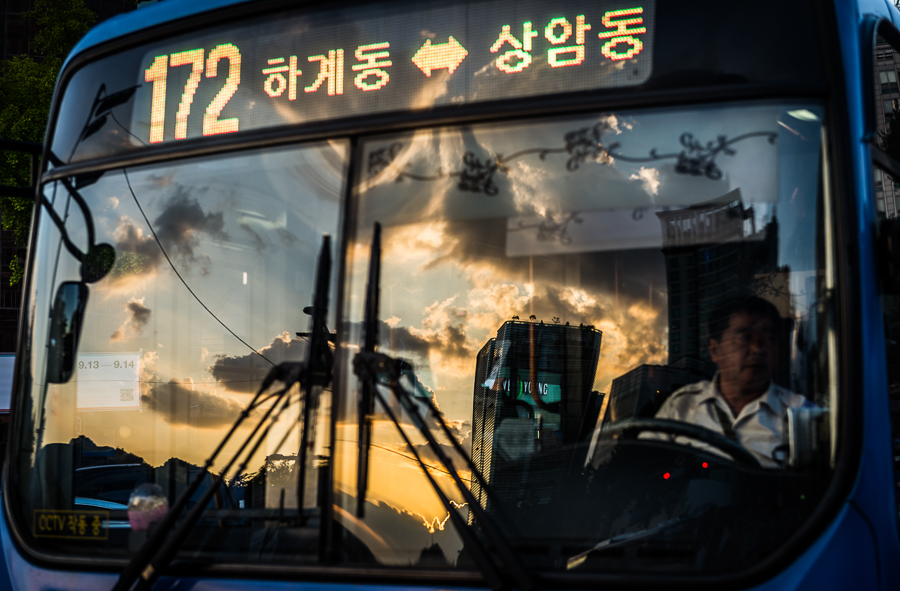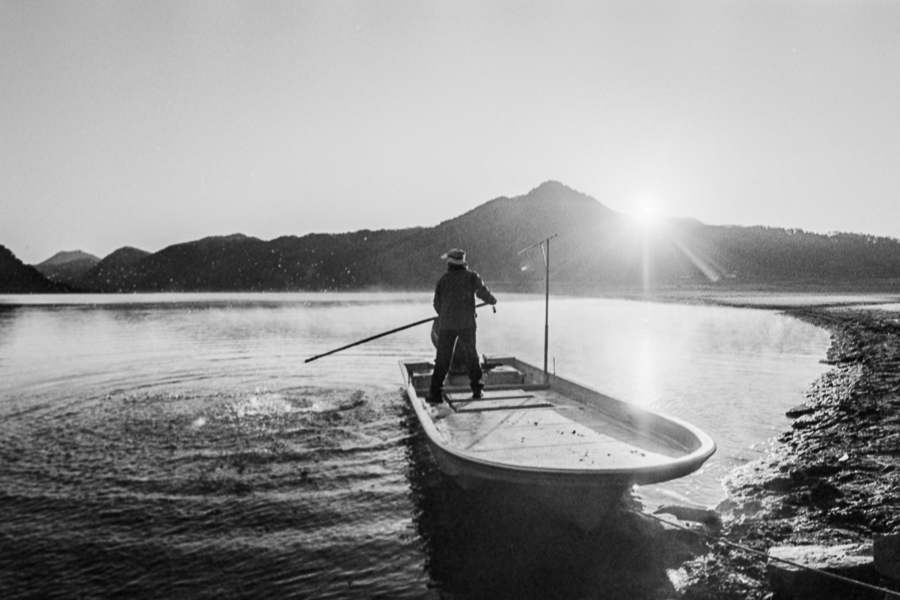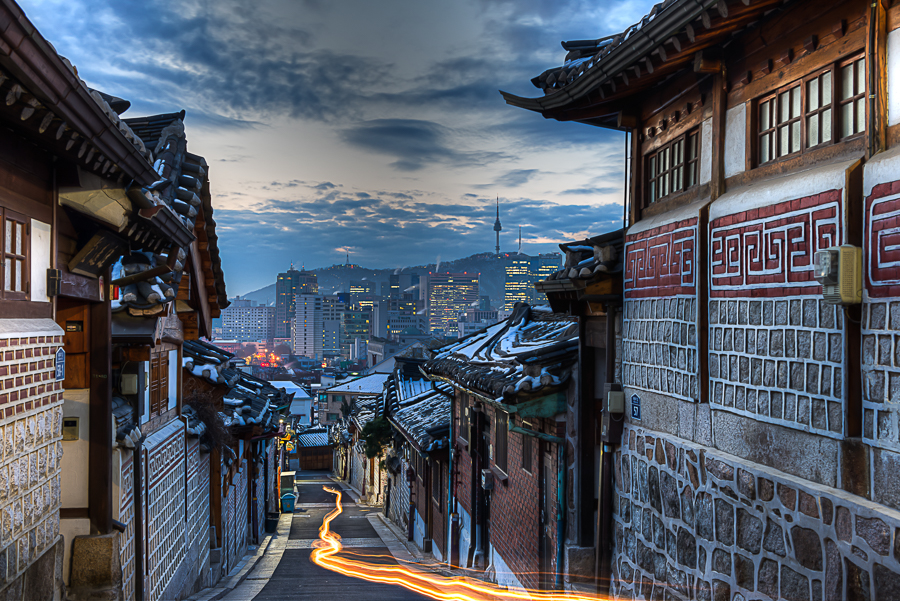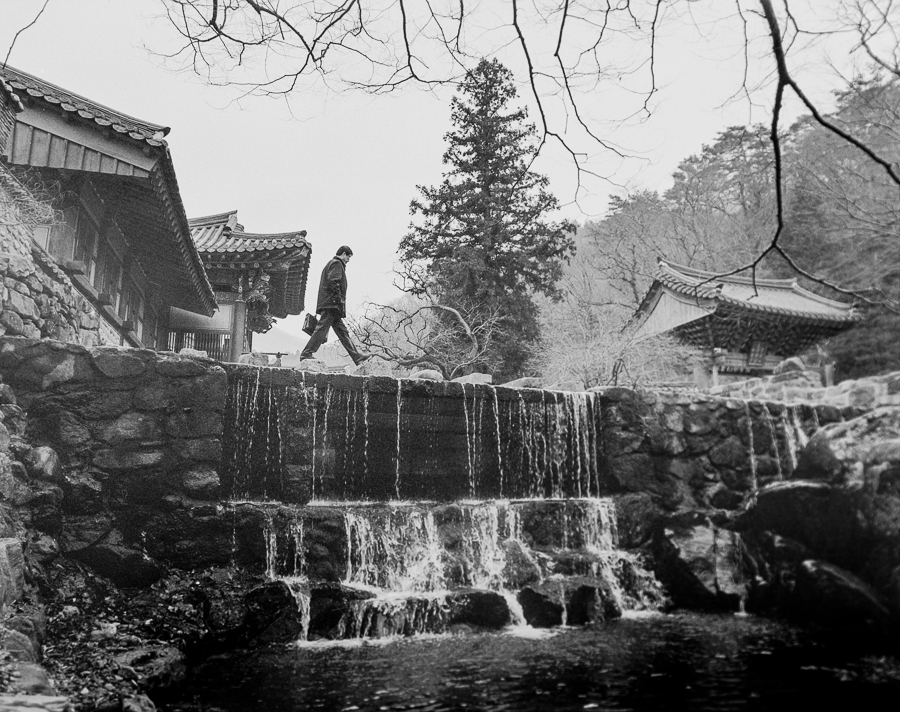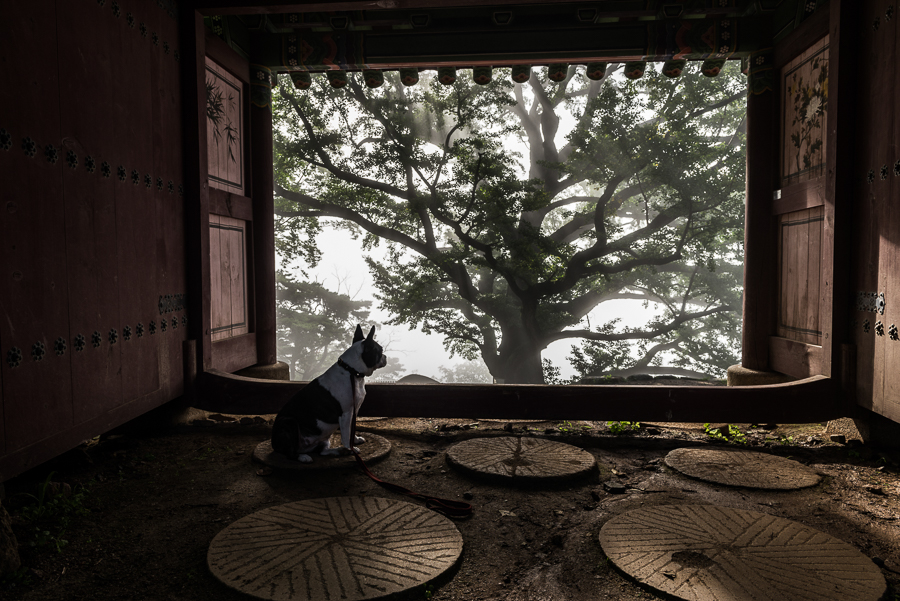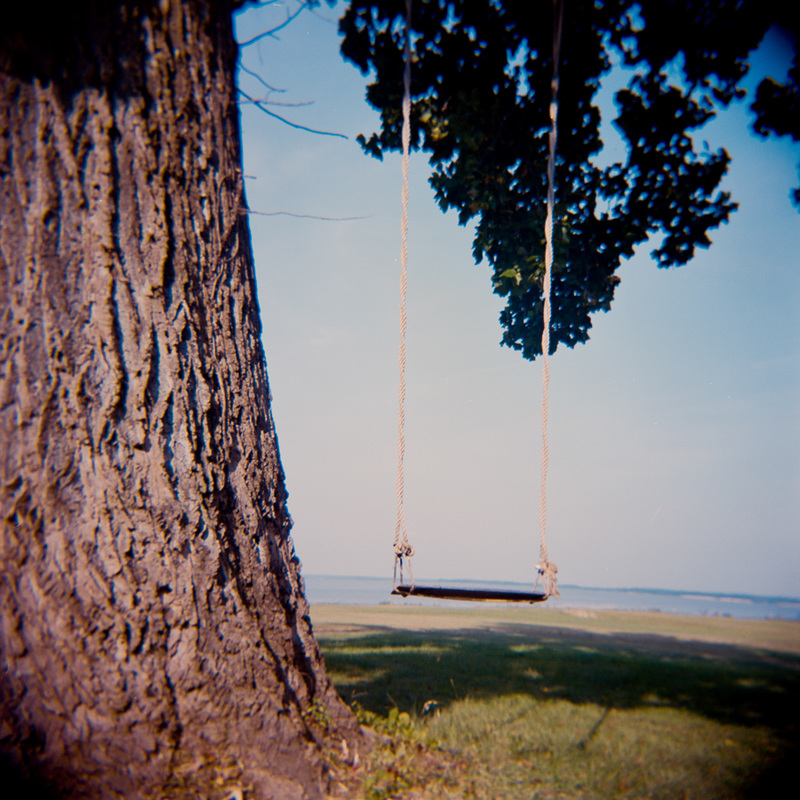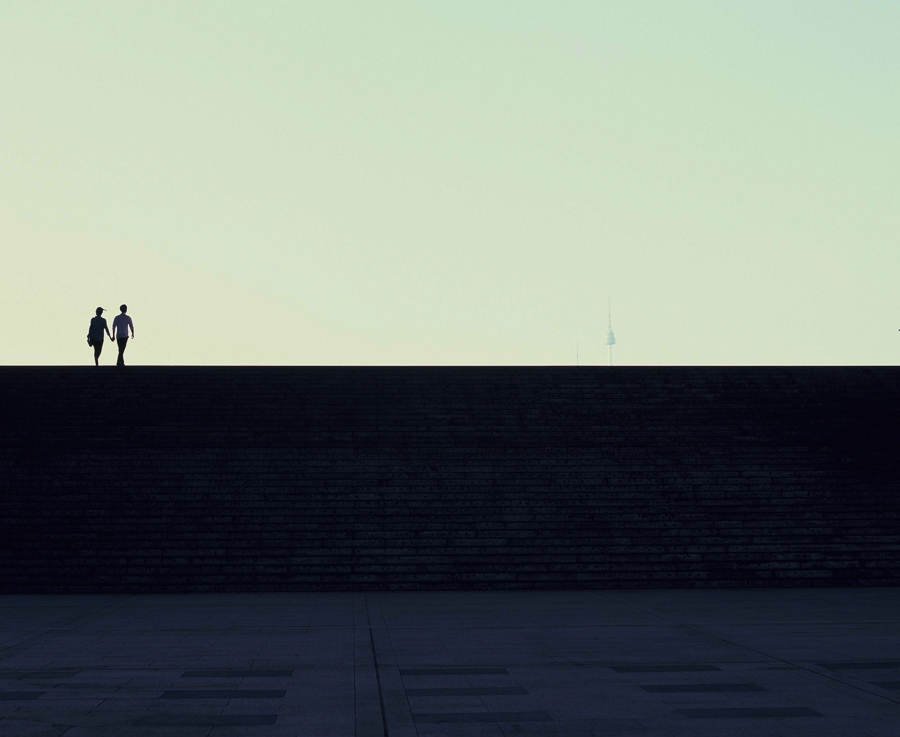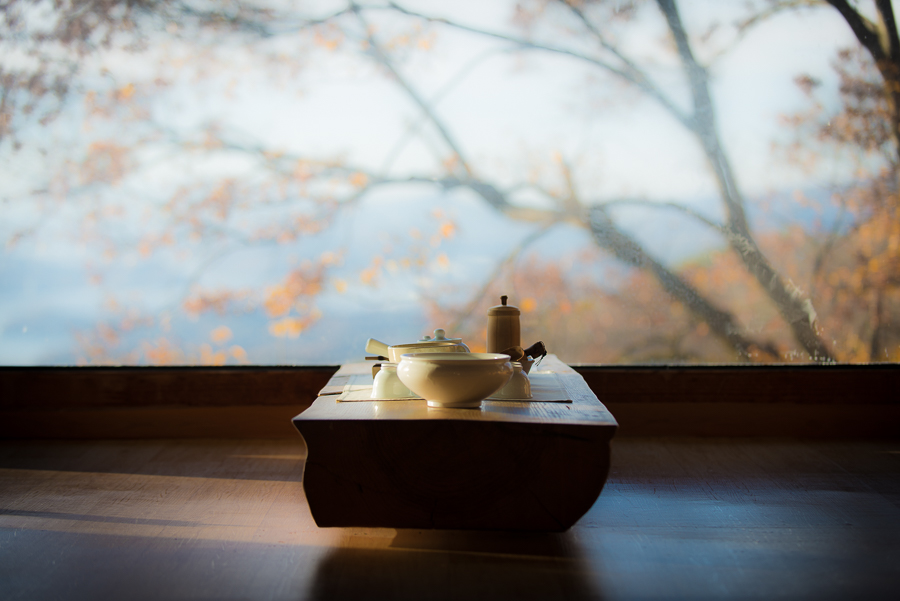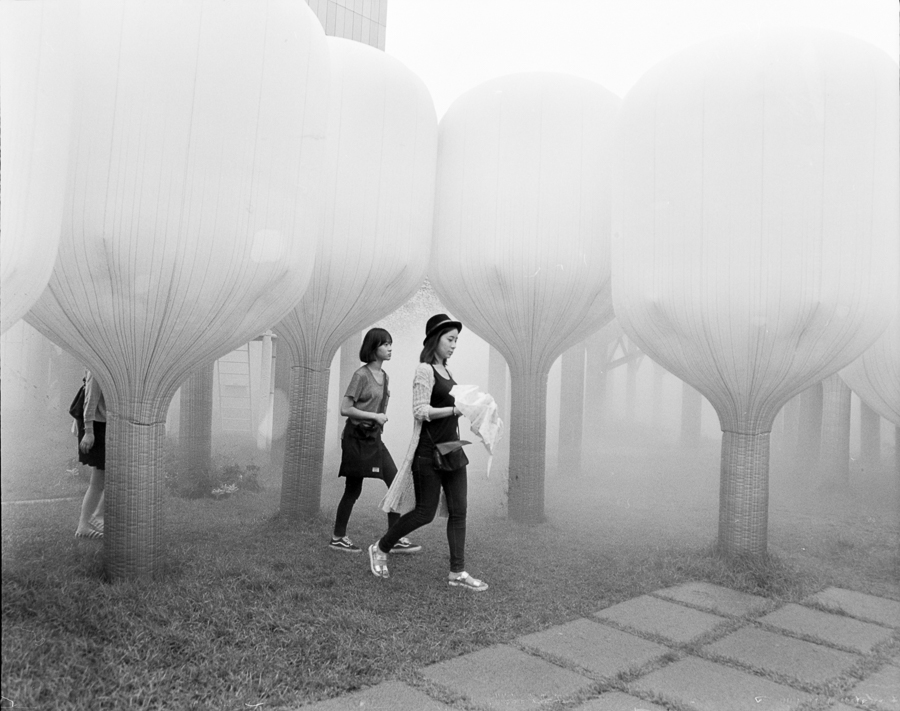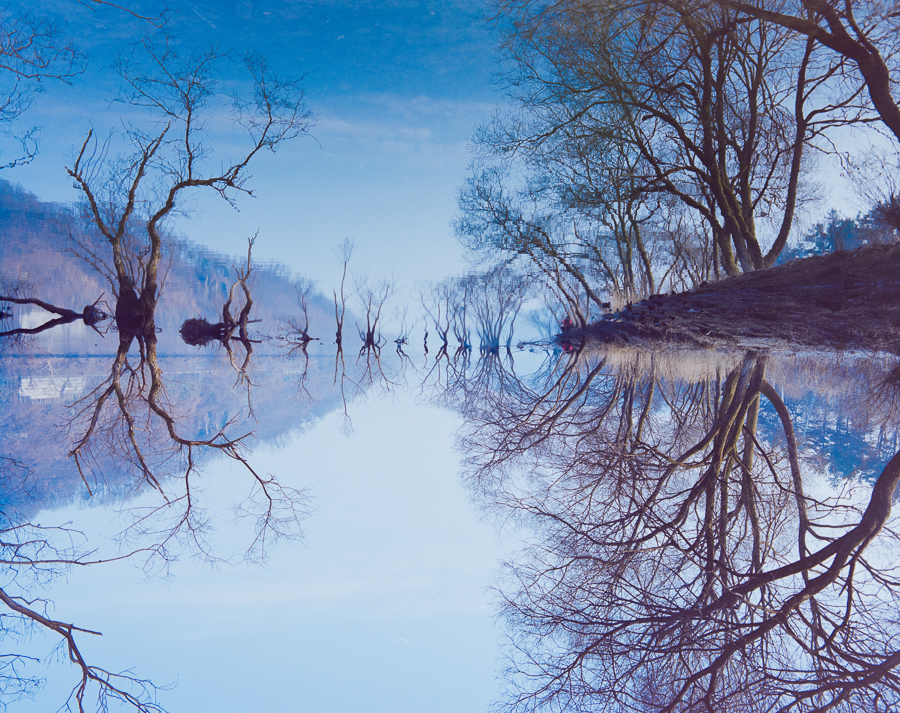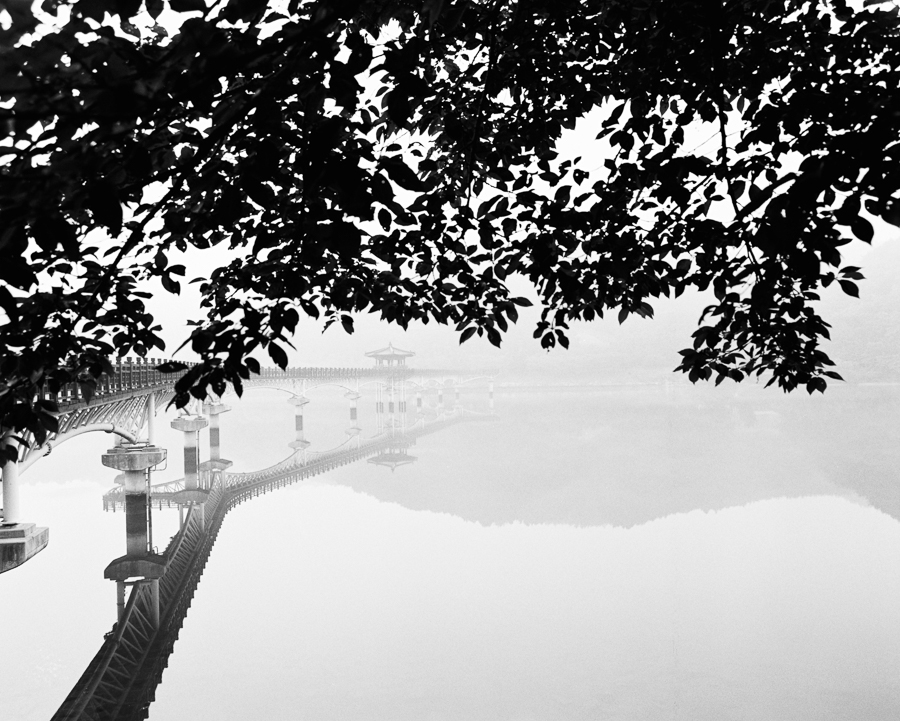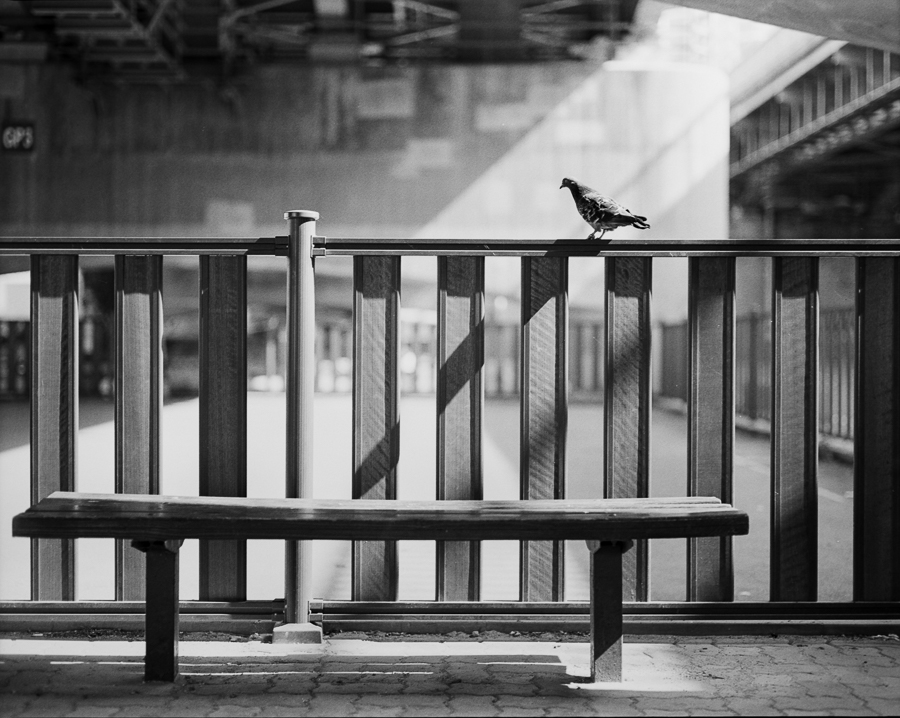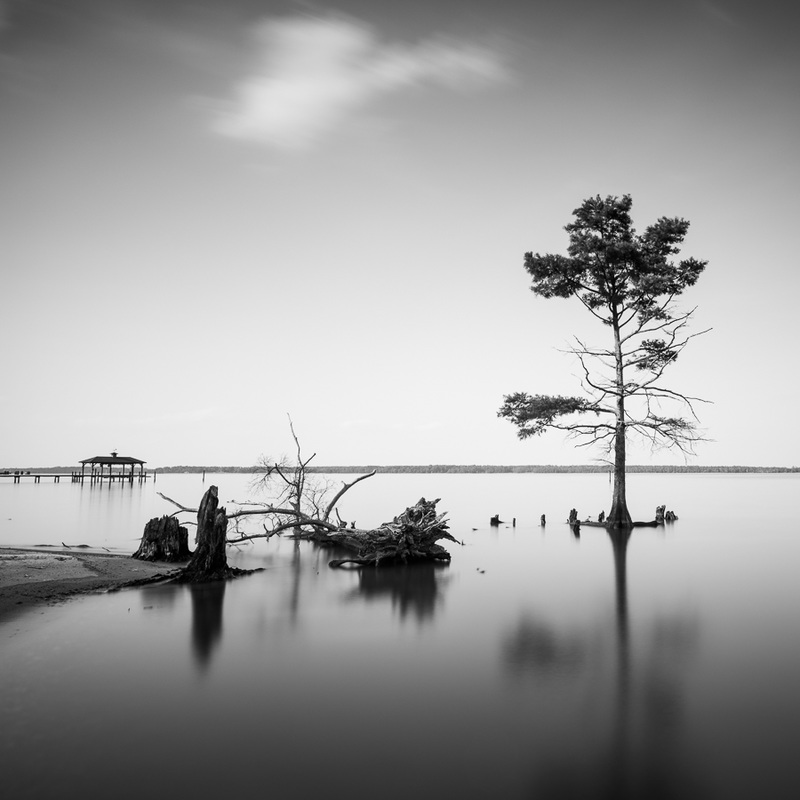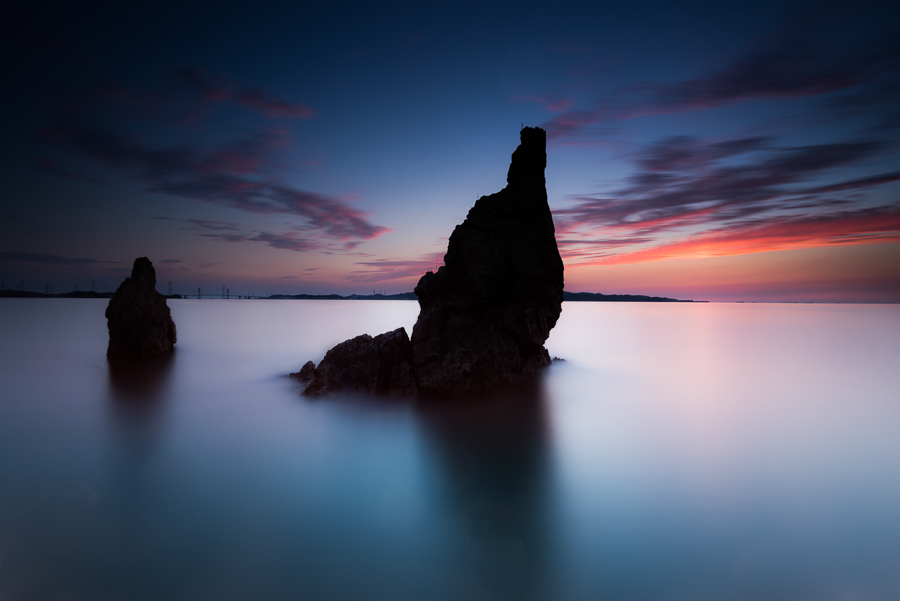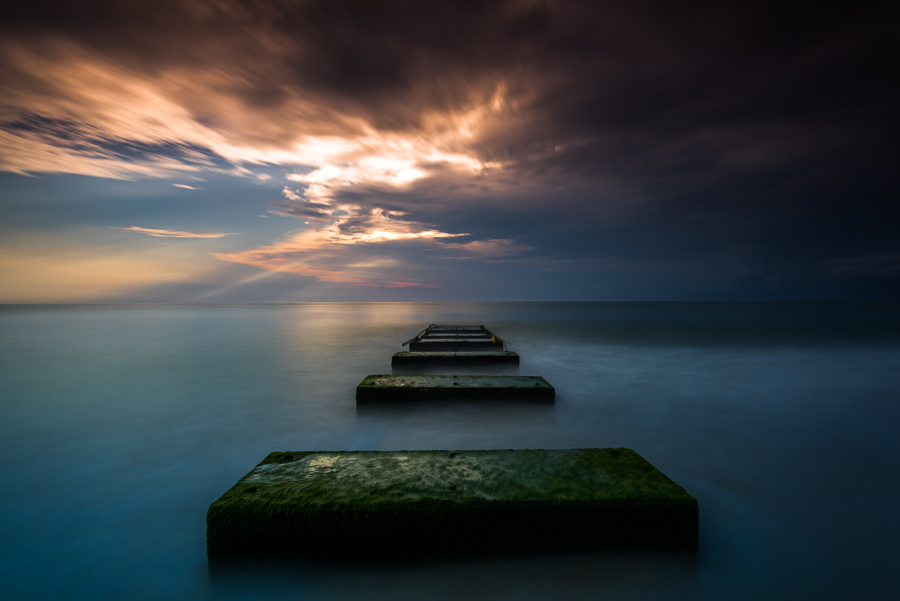|
Long before I was a photographer in Tokyo, I was an amateur hunting for my own style in Seoul. I spent many late nights scouring the internet looking for inspiration. New to the addiction of photography, I wanted to see it all. I found the haunting photographs made by the master Antione D'Agata and the cleverly crafted scenes of David LaChapelle. I sat mesmerized by the portraits of Sebastiao Salgado and intrigued by Nan Goldin (The list goes on and on). What I didn't know was that my then-home Seoul had a wealth of world class photographers who I was yet to discover. As I stumbled across a Facebook group whose content was provided exclusively by Korea-based photographers, I became shocked at what tremendous talent was literally all around me. One of the photographers with the most impact was the American, John Steele. For the next months I became very familiar with Steele's work. He seemed to shoot everything. His landscapes and cityscapes were wicked. His infrared work was so unique. The man shot street and even turned his camera on his dog, Holly. John was doing exactly what the internet says not to do. He was passionate about many photographic genres and wasn't afraid to publicly show that he wasn't going to specialize anytime soon. I looked forward to John's regular posts on social media and found myself wondering about what he would post next. I also wondered if I would ever meet the man behind the lens. To my delight, I had the opportunity to meet John at a watering hole before a group exhibition that we both had a piece in. With numerous other personalities in the mix, I found John to be humble, intelligent and soft spoken. Though he had a radiant smile, I could tell that John wasn't a bar man. I could also tell that he wasn't a man for crowds. After that chance meeting, I met John on several occasions. But, more often than our meetings, I heard other photographers mentioning John Steele. They spoke of the Virginian as if he was a myth, almost whispering his name. I wanted to know why. I know that you bought a Canon Elph in 1999. Was there a photographer in any sense of the word prior to 99? No, not at all, and there wasn’t until the last few years. Although I didn’t have a camera prior to that point, I have always been very observant about what’s going on around me, a perfectionist, and someone who knows what they like. I think all of these traits have been instrumental in shaping who I am as a photographer. Interesting that you mention the word perfectionist as a descriptor. I find that my need to achieve the “ideal” limits me creatively in that I, at times, cultivate something akin to tunnel vision. Do you think that this trait holds you back at all with your photography or does it propel you? I think at first it frustrated me because I didn’t really know what I was looking for. Once I started to figure that out, photography got more fun. I don’t think it’s hindered my creativity because I do like imperfections in frames but I like to be in control and know why I like those imperfections. I think the perfectionist part ties weirdly into my love for minimal subjects and compositions. Those scenes are so hard to find and everything has to be just right in those situations in order to really pull it off. What are your first memories surrounding photography? Your first subjects? My first memories are pretty fuzzy as the camera was just an accessory I would bring out to the convenience stores when my friends and I would go out for drinks after work in Korea. I vaguely remember enjoying taking pictures of the convenience store owner, a Mr. Kim I believe, standing next to friends of mine. Nothing substantial happened with the camera until fairly recently. You are known for capturing beautiful sunsets. But, just as often I notice sunrise as your subject. What does a sunrise shoot day look like for you? Depending on the time of year, I wake up at 2-3am, take Holly out for a bathroom walk and get a feel for the air and weather conditions. I look at the sky. I am not a big weather forecast or app kind of guy. If it doesn’t look so good, we come back in and sleep. But if I have a good feeling I will come back in and quickly pack. I have places that I like to visit over and over, such as Doomoolmeori. I like places that have a variety of interesting subjects and compositions and that look completely different in each season. On special weekends that I don’t have any work to do, which is almost never these days, I like to go farther from Seoul. I love Jeollannamdo, Kyungsangnamdo, anywhere, everywhere. I love the water, the ocean - minimalistic long exposures. I love the moment when the sun comes up over the horizon and the sun’s rays hit me in the face. The morning light - there is nothing like it - so clean, colorful, and energizing. How have you cultivated the ability to wake at the hours you do? When I first realized the importance of good light, it got much easier. The quality of light and air at sunrise is generally better for landscapes than at any other time of day as the city or town has been resting all night and has had a chance to take a deep breath. Considering landscapes, are there times when you actively choose not to shoot a beautiful scene? I do quite often when shooting landscapes, not so much with street or other genres of photography. With landscapes, especially when shooting film, I only take a shot if I think that it has a chance of going into my portfolio or if I have a really strong connection with the scene that I want to remember. That means that everything - the light, sky conditions, mood - has to come together at the shutter moment. I already have tens of thousands of 3 out of 5 Star images on my computer which, while valuable as learning tools for what not to do, is enough. Do you consider yourself to be an artist? A creative? I think that’s for other people to decide. So no, I do not. Can you describe an experience that could have led you to put all of your gear on Craigslist? I think just about any time I work with a model or have to use flash lighting. I do love candid shots of people out on the streets or in the countryside, and working with them to get some gesture or emotion. But whenever there is a planned setting where I have to give direction or use unnatural lighting - I am lost. I just try to think “What would old Andy Faulk do in this situation?” Does the frustration inspire you to develop your skills with different genres or does it reinforce your desire to stick with what you know? I have never been on the verge of giving up, and I think frustration might be too strong of a word. In those situations I am out of my comfort zone. When I am out in the wild on my own all of these creative ideas just naturally come to mind inspired by the place and environment. I think there is a lot more previsualization required in what you and other photographers do, and I truly admire that ability and am taking active steps to get more comfortable with that. It’s exciting. I don’t get frustrated much I get excited, but it’s probably because I mainly do personal work instead of client work so maybe I am freer to explore and take chances without having to show that work to anyone. Anyone who has followed your work has seen your use of infrared. As you describe on your website, the techniques involved with infrared are quite interesting. How did you stumble upon and fall in love with infrared photography? I was introduced and fell in love with infrared photography through the surreal work of David Keochkerian. The first time I saw it I didn’t understand it, I didn’t know what it was, I just knew I wanted to create something like that. So I spent some time learning the technique, and there is quite a bit to know to do it well. The eerie, mysterious, surreal mood really fits well with the subjects I like to shoot - water, clouds, reflections, trees, old creepy barns, houses and countryside scenes. Yea. You regularly post pictures to social media and have amassed a large and faithful following. In all honesty, what is your motivating factor in this practice? My motivation is to amass a large and faithful following. Haha no, I didn’t really start out with a set purpose when I started uploading pictures, other than to show the beautiful places that I’ve visited to anyone interested (mostly my mom and a couple of family members and friends at the time). When my photography started to improve a little I created a dedicated Facebook photography page about two and a half years ago and the audience started growing slowly. I never really think about whether my pictures will be popular when I upload them or not, I just upload what I think is great, and trust me that is a very, very low percentage of the total shots that I take. I still don’t know what the ultimate goal is with all of this, and I don’t really think about it much. I’m just enjoying the ride. Your lens is frequently turned on Holly, your faithful canine travel companion. How does her companionship make you a better photographer? Haha, the famous one. Well, I think her being around helps me to tell the story of the day or trip that we go on. Incorporating her into some of the pictures of the places we go makes it a much more enjoyable viewing experience. Additionally as anyone who knows me can attest I am not always the best at talking to people I don’t know well, and she is the best icebreaker in the world. People always want to play with her or pet her and that naturally leads to conversations and photo opportunities. Considering time and financial capabilities moot, is there a project that you would tackle? This is something that’s on my mind a lot. I am always trying to think of personal projects that I’d like to work on but at the same time I don’t want it to be forced. I think any kind of longitudinal project requires much passion for the subject, so without that it’s unlikely to succeed or be completed. I have a lot of respect for photographers who work on projects and have the patience to put the body together and display the results in whatever way at the end. That connection and story that they are able to tell on the subject of their calling is really something that I envy. I am not sure that I am at that point yet. I am not sure that I’ve found that one subject or series or related subjects that I’m passionate about documenting. It has been brewing in my mind for some time and I hope to get there one day. You have extensively documented Korea. What initial drew you to the subject? What about it still keeps your interest? It’s where I live. When I first started taking pictures it was my way to share my life and interesting things that I saw with friends and family back home. Over time, as I got more serious about photography, I gained a great appreciation for the artistic qualities of the Orient. I love lines, shapes, harmony and balance. I love finding beauty or greatness in simple subjects and people that people pass by every day without much thought and making them really stand out. I love making pictures that I feel only I could create. The grand landscapes are beautiful as well but it’s usually things that I find along the way that are most memorable to me and which end up being my favorite images. Many of the pictures included in this post fit into that category. Is vision inherent or is it a skill that can be cultivated? I am certainly sure that there are those that have a natural head start when it comes to creativity. I do not think that I am one of those people. My creativity has been developed through my passion. I feel that everything that I do from the moment I wake up to the moment I sleep every day filters into my photography in some way. If you weren’t clicking the shutter, how would you be spending your time? Before photography became my full time life (4-5 years ago), I used to have a variety of activities that I enjoyed. I did a lot of road biking, a lot of hiking (which I still do), I used to have a social life. I was pretty happy then, but not like I am now. I have found what I love doing, and there is no going back. Beyond the lens, what inspires you? That is a tough question as these days most of my inspiration comes from photographers and learning about their techniques and what they’ve done to distinguish themselves. I am inspired by great technique and execution of any type. I am inspired by anyone who is doing what they love and is in pursuit of their dreams. It could be an athlete, a farmer, a musician, or a student of mine. When members of Korea’s photography community speak of you, there is a veneration in their tone. You have basically hit myth status in that others perceive you to be as elusive as a snow leopard. How do you react to that? This is the first I’ve heard of this, so I am reacting on the fly. It feels great to be honest, and the respect is wholeheartedly returned by me. Everyday I see mind-blowing work on various social media that inspires me to go out and to keep getting better, so thank you guys! Will your photos outlive you? Yes, without a doubt. I mean I think everyone hopes for that. I do think that I will be remembered as a photographer, but I also think it will become increasingly more unlikely for photos to outlive photographers. I don’t know, I won’t be here anymore so I can only worry about things I can control. All photographs protected under copyright law by John Steele and are used with permission.
|
TABO PHOTO
Blog Categories
All
|
